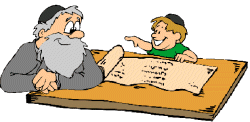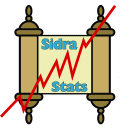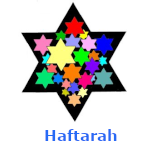Acharey Moth
אַחֲרֵי מוֹת
Leviticus 16:1 – 18:30
Sacrifices
HaShem told Moses right after the death of Aaron’s two sons who died after bringing a false sacrifice to HaShem and died because of it. “Speak to your brother Aaron and tell him not to enter the inner sanctuary that is beyond the partition that hides the Ark, this will keep him safe because I appear over the Ark in a cloud.
When Aaron enters the inner sanctuary it must be with a bull for the sin offering and a ram for the burnt offering. He must dress as a priest and immerse himself in a mikvah before entering. He should bring two goats for a sin offering and a bull for the burnt offering for the Israelite community. For his own sin offering, he should bring a bull for himself and his family.
Aaron must place two lots on the two goats, one for HaShem and one for Azazel. The one for HaShem will be for the sin offering and the one for Azazel shall be sent into the desert. The goat that is sent into the desert will carry all the nation’s sins with it. (This is where the concept of a “scapegoat” comes from).
After completing this ritual, Aaron must take off the special linen clothing he wears for the offering, and go to the mikvah. Aaron may then offer his own burnt sacrifice and the people’s sacrifice. The best part of the sin offering should be burnt on the altar. In this way, Aaron atones for all the sins of the people, both the ones they did on purpose and the ones they did by mistake.
The person who led the goat to the desert must also change his clothes and go to the mikvah. The bull and goat that had been sacrificed should be taken outside the camp and their remains should be burnt in fire. The person who burns them must go to mikvah before he can return to the camp.
This is to be law forever. Each year on the 10th day of the 7th month you must fast and not do any work. This holds true for all native-born and converted people. On this day your sins will be atoned and your soul cleansed. This day is the Shabbat of all Shabbatim (Sabbath of all Sabbaths).
The priest who is anointed (when a new priest is made High Priest there is a ceremony in which he has holy oil put on his head) and made High Priest must make this atonement wearing the linen clothes. The atonement that he makes will be for the priests and the people.
This is to be law forever so that each year the people will gain forgiveness for their sins. Aaron later did as HaShem had told Moses. (This is the place in the Torah where we are given the law for Yom Kippur.)
HaShem spoke to Moses telling him to speak to Aaron and his sons and the other Israelites to tell them that this is what HaShem commanded: If any member of Israel sacrifices an ox, sheep or goat – whether inside or outside the camp – and does not bring it to the Communion Tent to be offered as a sacrifice to HaShem, that person is considered a murderer. That person has committed an act of murder and shall be cut off spiritually from his people. The Israelites will then bring the sacrifices they make in the fields to the Communion Tent and stop sacrificing to the other gods that continually tempt them. If any member of Israel or convert eats blood I (HaShem) will direct anger against him and cut him off from his people. This is because the blood is the life force and I (HaShem) have given it to you to atone for your sins. And HaShem told the Israelites, “Let none of you eat blood.” If any person traps an animal or bird that may be eaten (is Kosher) and spills its blood, that blood should be covered with earth. This is because every living creature has its blood associated with its life force. If any person eats a creature that has died on its own (this makes it not Kosher) and is not Kosher, he must go to Mikvah. He then remains unclean until evening, and then he will be clean. If he doesn’t go to mikvah he will bear his guilt.”
Haftarah Connection

Ezekiel 22.1-19
This week’s Parsha talks about the “Sabbath of all Sabbaths” – Yom Kippur. It explains what the Kohen are to do to help the nation of Israel to purify them.
In the Haftara we read that morality in the Kingdom of Judah is very low. The people are told by the Prophet Ezekiel that they will be thrown out of the land unless they change their wicked ways and worship HaShem.
Sidra Stats

- Twenty-Ninth of 54 Sedras in the Torah
- Written on 154 lines in the Sefer Torah
- 80 P’sukim (verses)
- 1,170 words
- 4,294 letters
Next week’s Parashat: Kedoshim


